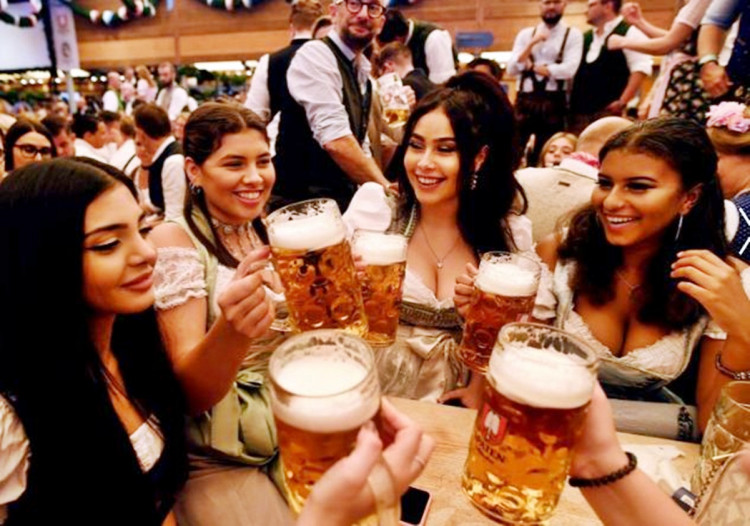Bavaria, last April, canceled this year's celebration of the world famous "Oktoberfest" beer festival in Munich slated for September 19 to October 4 out of COVID-19 fears but locals are finding ways to celebrate, nonetheless.
"It hurts, it's such a pity," said Bavarian Minister-President Markus Söder at the time. "We have agreed that the risk is simply too high."
This weekend, the Bavarian government went even further than canceling Oktoberfest. It banned the sales of alcohol to forestall "replacement Oktoberfest parties" being planned by Germans distraught at the scrapping of their festival that draws up to six million visitors annually.
As part of this ban, the Munich city government also forbids sales of beer and alcoholic drinks at Theresienwiese, the area where the main Oktoberfest celebration is usually held every year. Theresienwiese is an open space at the Ludwigsvorstadt-Isarvorstadt area in Munich that serves as the official grounds for Oktoberfest. It covers an area of 420,000 square meters.
The ban starts 9:00 a.m. local time (0700 GMT) Saturday, and was put in place to prevent locals holding replacement parties for Oktoberfest. This means Oktoberfest devotees will have to celebrate, carouse and raise their "steins" overflowing with beer at home.
Oktoberfest should now be flooded with hundreds of thousands of tourists from Germany and around the world. Instead, the beer taverns are almost empty. In lieu of huge and raucous beer parties at Theresienwiese, 54 landlords issued invitations to a "pub Wiesn" to encourage revelers to celebrate at local pubs.
In a tribute to past Oktoberfest, Münchner (a person from Munich) held a traditional breaking open of beer barrels. These scaled back celebrations will run until October 4 when the traditional Oktoberfest is supposed to end.
The Polizeipräsidium München (Munich Police Department) sent officers on Saturday to break-up large parties that sprouted at Theresienwiese. Munich police officers, however, reported the presence of a few people, some in traditional Oktoberfest dress of lederhosen for men and "dirndl" dressed for women, walking or partying in small groups.
The reason for the unusual strictness of the Munich city government is that new COVID-19 cases in the city are rising uncomfortably fast. The per capita infection rate is now above the benchmark 50 new cases per 100,000 residents a week.
The city reported 2,300 cases Saturday, a 20 percent increase from the 1,910 cases Friday. It had 2,190 cases Thursday and 1,900 cases Wednesday. Munich has the second highest number of confirmed COVID-19 cases in German cities after the capital, Berlin.






